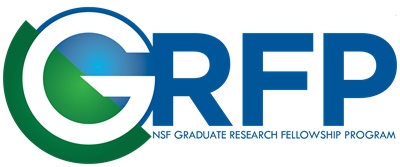Money
Due to recent eligibility changes in the NSF's Graduate Research Fellowship Program, as well as the impending fall application deadline, the Graduate Student Resource Center conducted an information session for students interested in applying to the program. Read on for a recap of the event.
 Earlier this spring, the National Science Foundation announced changes to their Graduate Research Fellowship Program (GRFP) through a March 2016 press release. Due to these changes and the annual fall deadline approaching, the Graduate Student Resource Center conducted a workshop for interested students. Below is a recap of the event.
Earlier this spring, the National Science Foundation announced changes to their Graduate Research Fellowship Program (GRFP) through a March 2016 press release. Due to these changes and the annual fall deadline approaching, the Graduate Student Resource Center conducted a workshop for interested students. Below is a recap of the event.
PURPOSE
The NSF GRFP was created to help ensure the vitality and diversity of the scientific, engineering, and globally-engaged workforce of the United States. The purpose of the program is to support outstanding early graduate students (1st and 2nd year) who are pursuing research-based master's and doctoral degrees in science, technology, engineering, and mathematics (STEM), or in STEM education, and to encourage women, members of underrepresented minority groups, persons with disabilities, veterans, and undergraduate seniors to apply.
BENEFITS
The direct financial, professional, and support benefits for GRFP Fellows is extensive. First, all fellows currently receive $34,000 per year for three years, during a five-year fellowship period, in addition to a $12,000 cost-of-education allowance towards tuition and fees. In terms of a professional network, GRFP has access to an international network of experts in science and engineering through the Graduate Research Opportunities Worldwide (GROW) program. Fellows may also access federal facilities and laboratories through NSF's Graduate Research Internship Program (GRIP). Other benefits include Cyberinfrastructure Resources, Supercomputing Time, and paid or unpaid leave options for dependent-care needs.
CHANGES
Key changes to the GRFP are that students may only apply once to GRFP and students may not have already completed a graduate or professional certification program. More detailed information may be found in NSF's GRFP Solicitation Guidelines.
DEADLINES
As in prior years, the application deadlines for GRFP are in October and dependent on field of study.
- Life Sciences and Geosciencesâ: Monday, October 24, 2016
- Computer & Information Science and Engineering, Engineering, or Materials: Tuesday, October 25, 2016
- Psychology, Social Sciences, STEM Education and Learningâ: Thursday, October 27, 2016
- Chemistry, Mathematical Sciences, Physics and Astronomy: Friday, October 28, 2016
ELIGIBIITY
Those intending to apply are eligible if they meet all of the following criteria:
- U.S. citizens or permanent residents
- Early-career graduate students (1st or 2nd year)
- Pursuing research-based MS and PhD
- Majoring in science and engineering field
- Plan to enroll in accredited US institution
NSF will not accept applications for those enrolled in medical, dental, law, and public health program (including MBA, MPH, MSW, JD, MD, and DDS), or those who are in joint professional degree-science programs (e.g., MD/PhD or JD/PhD) or dual professional degree-science programs.
TIPS FOR APPLYING
Common to any application process, the following was recommended. First, write for a general audience but not to your specific field because reviewers are from all backgrounds of science and engineering. Be sure your statements are of your own work, follow all submission guidelines and meet all deadlines. Basically, follow directions âso your application isn't passed up because of small or technical issues. Avoid sending additional items that are not requested such as manuscripts, resumes, medical reports, news clippings, or links to personal web pages.
RESOURCES AND CONTACTS
A current 2016-2017 NSF GRFP recipient and third-year STEM Education graduate student, Jasmine McBeath, was available to speak about her process for applying last year as well as give advice to new applicants. The Graduate Student Resource Center âalso holds a library of successful applications for the NSF GRFP as well as other fellowships. These resources, GSRC staff, and peers are available for additional questions or guidance to students applying. And, as always, refer to the GradPost for future workshops and events.